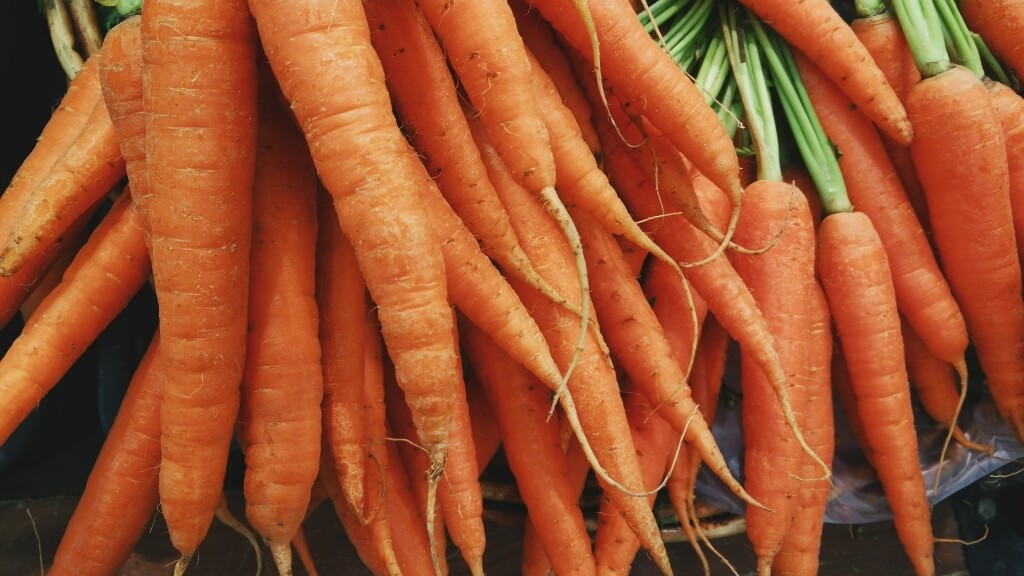Carotene-rich diet linked to lower fat levels in arteries
Study by IDIBAPS and UOC carried out with 200 people aged between 50 and 70Carotenes are found in yellow, orange and green fruits and vegetables and are potentially capable of checking atherosclerosis

A high level of carotenes in the blood is linked with a lower degree of atherosclerosis in the arteries and thus a lower risk of cardiovascular diseases. These are the conclusions of a new study by a team of researchers from IDIBAPS and the UOC, published as open access in Clinical Nutrition.
The work was headed by Gemma Chiva Blanch, of the IDIBAPS Translational research in diabetes, lipids and obesity group, led by Josep Vidal. Chiva Blanch also forms part of the CIBEROBN research centre and is an associate professor and researcher at the Faculty of Health Sciences of the Universitat Oberta de Catalunya (UOC).
Atherosclerosis and cardiac risk
Atherosclerosis is the build-up of fat, generally the LDL or "bad" type of cholesterol, on the inner walls of the blood vessels. This build-up, in the form of atherosclerotic plaques, causes a narrowing of the vessel's internal diameter, thereby hindering the blood's circulation.
Furthermore, these plaques can rupture and form clots that obstruct the blood flow, which can lead to myocardial infarctions (heart attacks), when the blood doesn't reach the heart, or ischaemic strokes, when it doesn't reach the brain.
The role of carotenes
It's no secret that diet plays a key role in cardiovascular diseases. Carotenes are bioactive compounds found in yellow, orange and green fruits and vegetables, such as carrots, spinach, lettuce, tomatoes, sweet potatoes, broccoli, cantaloupes, bell peppers, mangoes, papayas, apricots, loquats and pumpkins. Carotenes are potentially capable of checking atherosclerosis. "However, the studies carried out to date have not been conclusive and it even appears that, when administered as a supplement, they have a prejudicial effect," explained Chiva Blanch.
The article looked at 200 people aged between 50 and 70 forming part of the DIABIMCAP cohort and recruited by the IDIBAPS Primary healthcare transversal research group, led by Antoni Sisó Almirall. The volunteers taking part in the study were analysed with regard to two parameters: the concentration of carotenes in the blood and, by means of ultrasound imaging, the presence of atherosclerotic plaques in the carotid artery.
"The study concludes that the greater the concentration of carotenes in the blood, the lesser the atherosclerotic burden, particularly in women. […] So, we can confirm that a diet rich in fruit and vegetables and thus in carotenes lowers the risk of suffering from cardiovascular diseases," said Chiva Blanch.
This UOC research fosters Sustainable Development Goal (SDG) 3, Good Health and Well-being.
Reference article:
Bujosa F, Herreras Z, Catalán M, Pinyol M, Lamuela-Raventos RM, Martínez-Huélamo M, Gilabert R, Jiménez A, Ortega E, Chiva-Blanch G. Total carotene plasma concentrations are inversely associated with atherosclerotic plaque burden: A post-hoc analysis of the DIABIMCAP cohort. Clin Nutr. 2023 May 13:S0261-5614(23)00147-4. doi: 10.1016/j.clnu.2023.05.005. Epub ahead of print. PMID: 37230851.
Press contact
Sònia Armengou Casanovas
sarmengouc@uoc.edu
+34 619 413 823
UOC R&I
The UOC's research and innovation (R&I) is helping overcome pressing challenges faced by global societies in the 21st century by studying interactions between technology and human & social sciences with a specific focus on the network society, e-learning and e-health.
Over 500 researchers and more than 50 research groups work in the UOC's seven faculties, its eLearning Research programme and its two research centres: the Internet Interdisciplinary Institute (IN3) and the eHealth Center (eHC).
The university also develops online learning innovations at its eLearning Innovation Center (eLinC), as well as UOC community entrepreneurship and knowledge transfer via the Hubbik platform.
Open knowledge and the goals of the United Nations 2030 Agenda for Sustainable Development serve as strategic pillars for the UOC's teaching, research and innovation. More information: research.uoc.edu.
Experts UOC
Press contact
-
Editorial department
